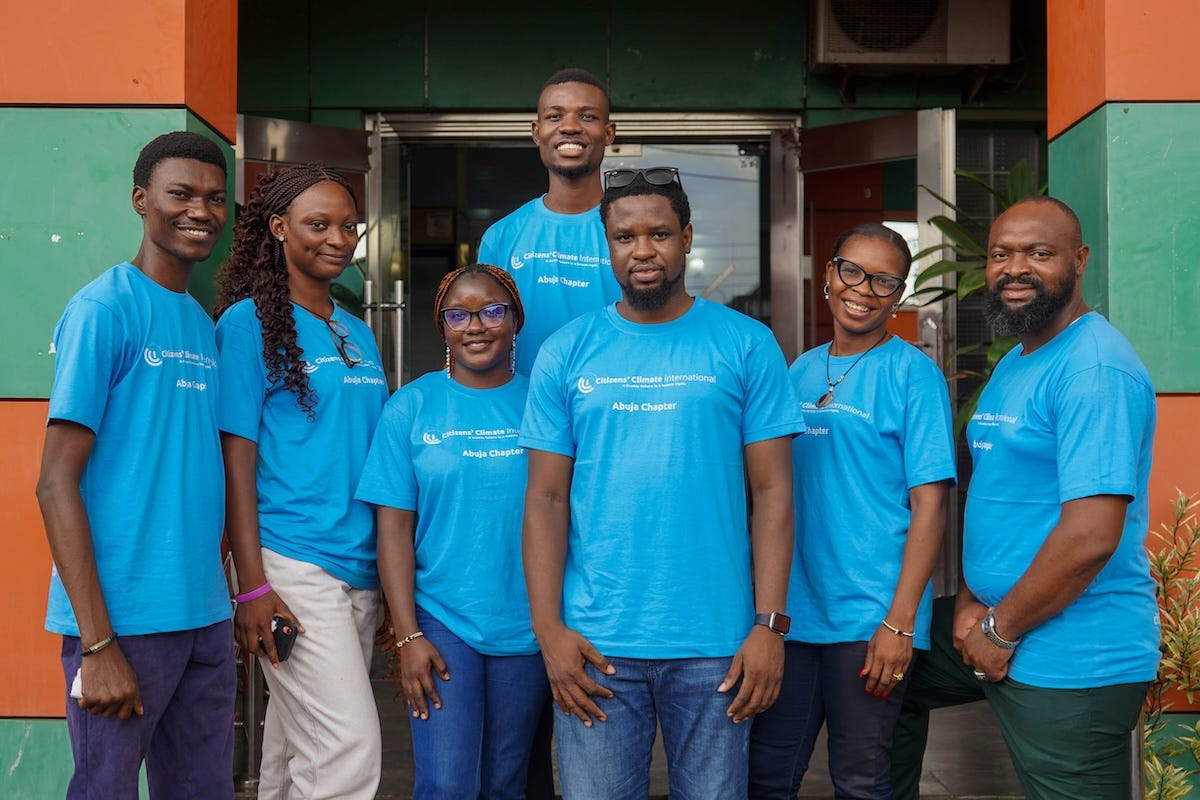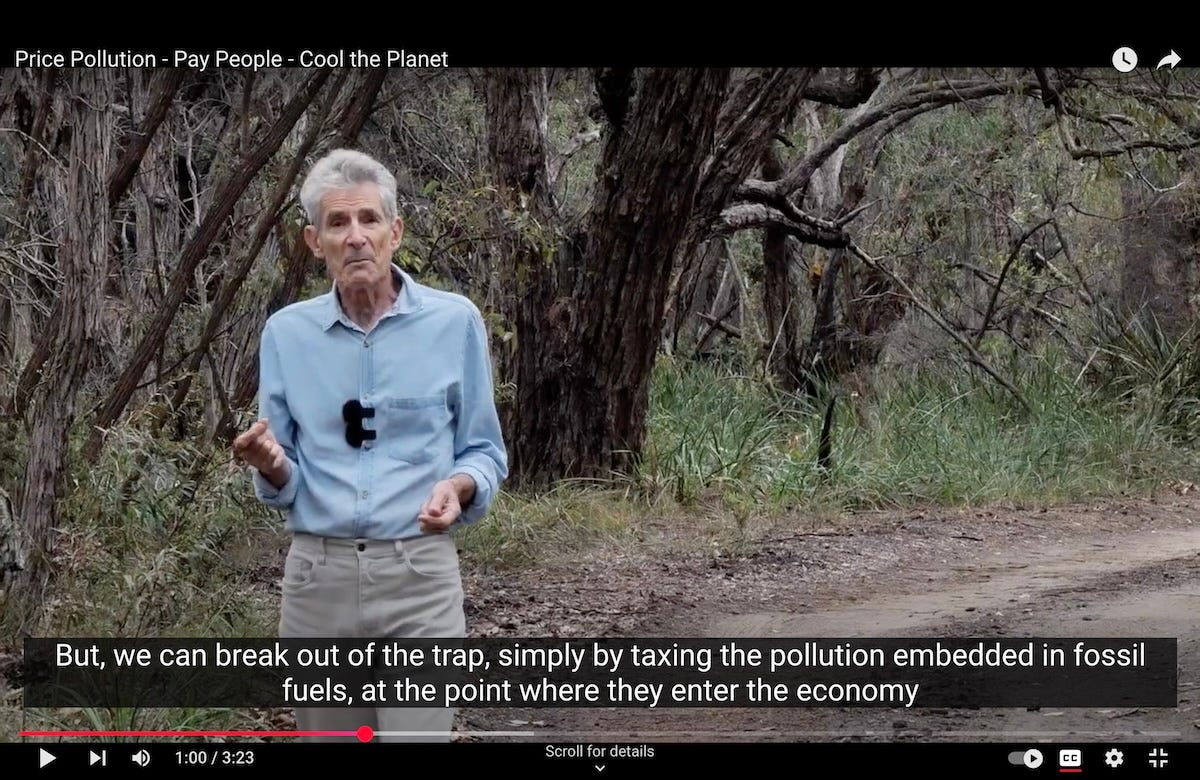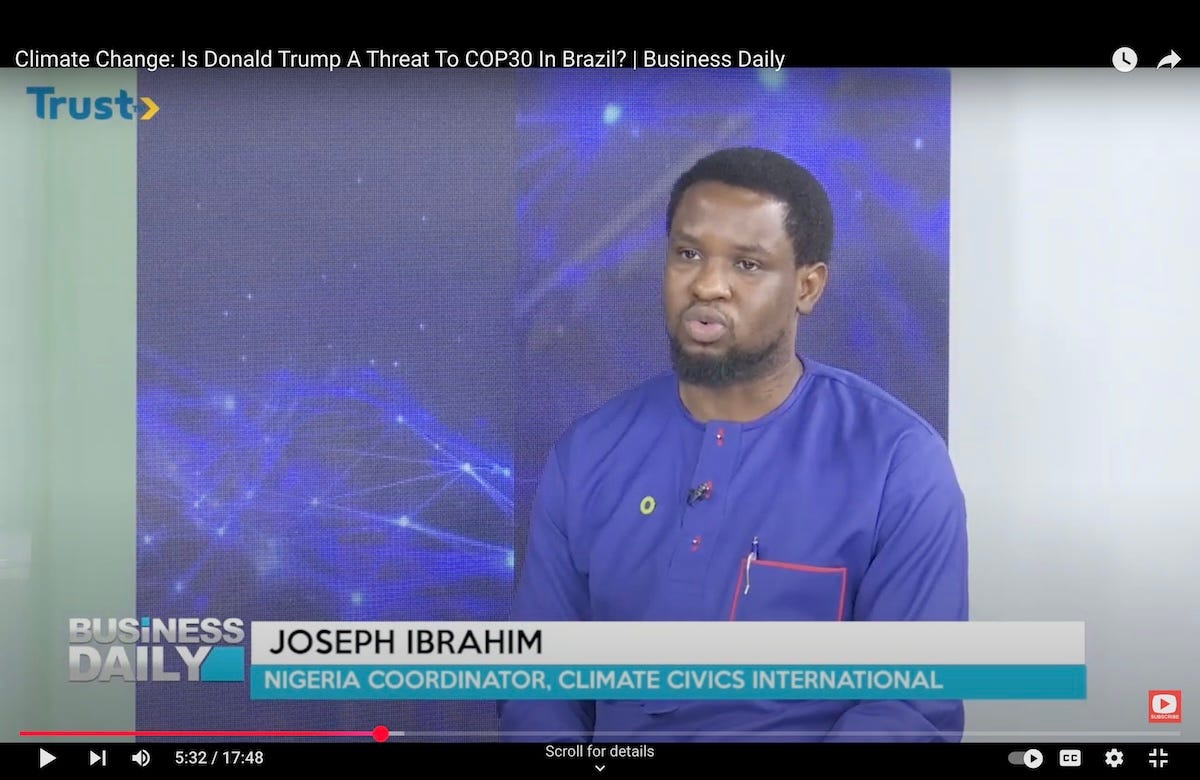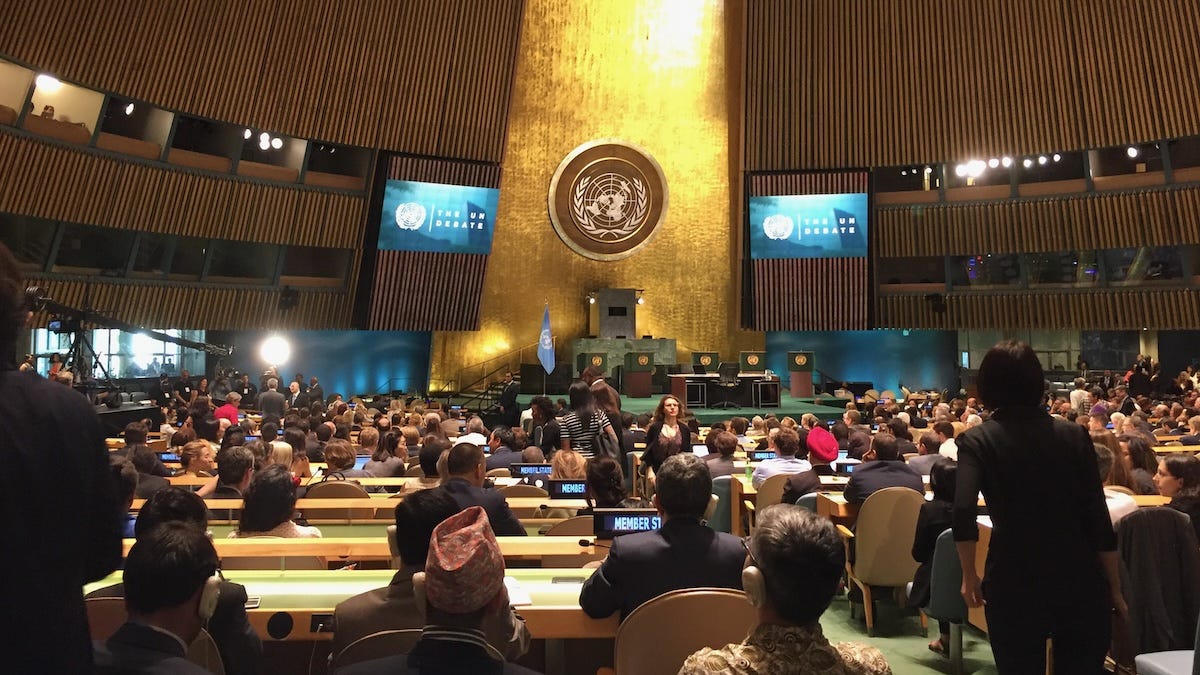It's up to us now
NEWSLETTER, January 2025—Withdrawal from Paris Accord erodes security; CCI chapters setting goals for 2025; Aussies launch climate income campaign; Capital to Communities 2025
For years we've said that politicians don't create political will; they respond to it. For that reason, we cannot sit back and wait for leaders and people in government to act on the burgeoning crisis of climate change. Leaders will only act when enough of their citizens demand that they do. Lately, elections in the United States and other nations have brought to power individuals who are inclined to pause or backtrack on progress made to reduce the carbon pollution that is heating up our planet. Under these circumstances, it is easy to succumb to despondency and forget the power we hold to change humanity's course and preserve a livable world. Now, more than ever, citizens need to make their voices heard in ways that motivate their governments to act with urgency on the transition away from fossil fuels. At Climate Civics International, we remain committed to empowering citizens to constructively engage elected officials, to educate them on the consequences of inaction, and to offer solutions that benefit everyone and create a world where all have the opportunity to thrive.
Withdrawal from Paris Accord erodes security
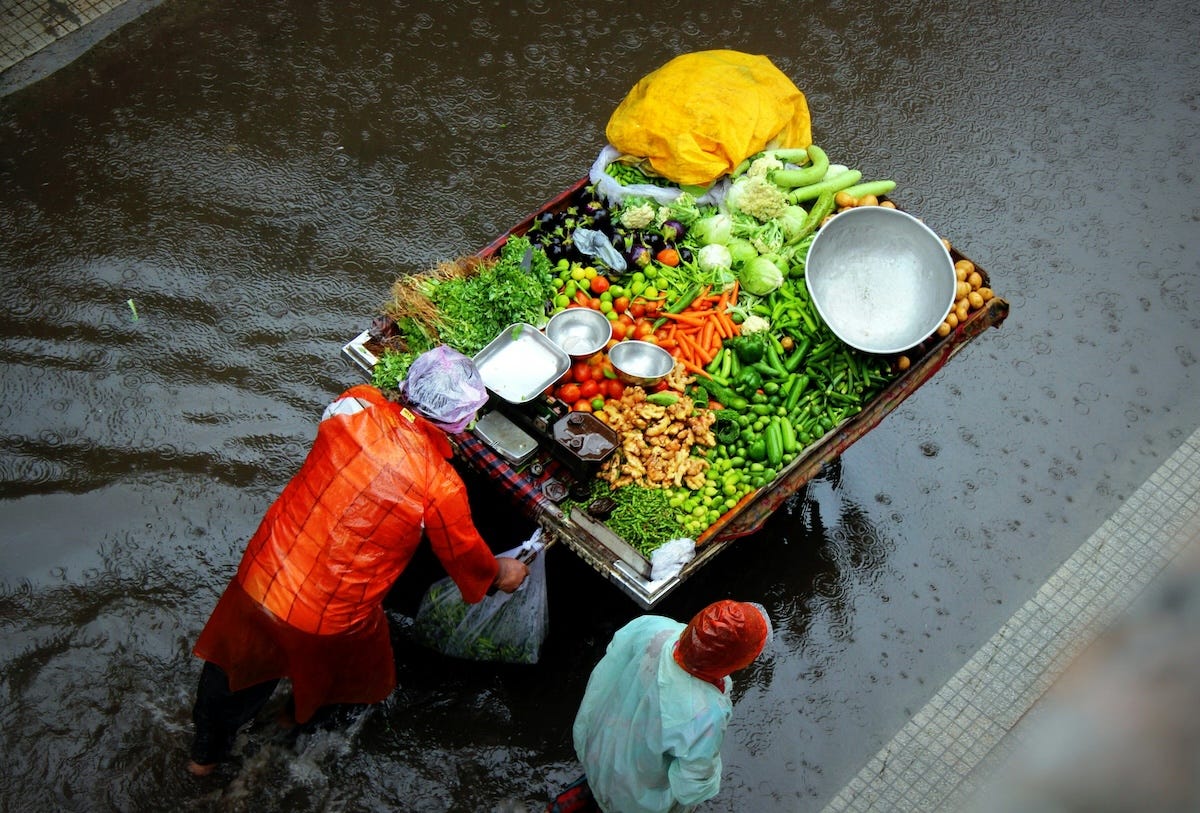
On his first day in office, President Trump announced that the U.S. is withdrawing from the Paris Climate Agreement, a process that will take a year to complete. As Climate Civics International Executive Director Joe Robertson writes, Trump's order "will likely cost the United States more than any single decision in history."
The Paris Accord was a diplomatic breakthrough, with nations of the world agreeing to cooperate to reduce the catastrophic risks of climate change. Undermining the agreement erodes the painstaking work done to reduce greenhouse gas emissions that are heating up our planet. In a statement on CCI's website, Joe writes: "Mr. Trump prides himself on having a bold vision for enforcing US interests through trade relations. This will become far more difficult, if not impossible, as food supplies are strained and nations around the world begin to shut down exports. The result will be food price spikes at levels not seen since the Great Depression and the breakdown of supply chains for everything from grain and fuel to rare-earth minerals needed for advanced information technologies."
In the coming year, for the good of our nation and the world, Trump must reconsider this decision and improve U.S. leadership on climate crisis response.
CCI chapters setting goals for 2025
As the new year begins, Climate Civics International chapters have been meeting to decide on their goal for 2025 and their plans for achieving that goal. Some chapters will be lobbying their governments to put a price on carbon with climate income distributed to households. Some will work with their governments to adapt to the climate change impact on food production and health in their countries. The idea is to set an achievable goal and then devise a plan to make it happen.
Is your chapter making plans to achieve a goal this year? If so, we'd love to hear about it. Take a few minutes to share your plans through our online form. In next month's newsletter, we'll let our readers know about some of the goals our volunteers plan to tackle this year.
Aussies launch climate income campaign
Speaking of setting goals and taking action, Citizens' Climate Australia has launched a campaign to put pressure on Australia's Treasurer to price carbon pollution and give climate income to households. On the campaign's website, CCL Australia says:
Returning the tax revenue back to us will make sure that no politician can say we will be worse off and try to ‘axe the tax’. The tax, combined with ‘climate income’ will enable us all to decarbonise together and give us all a much better chance of escaping the crisis that pollution is creating.
The campaign, which has posted a short video about pricing pollution with climate income, aims to generate a million letters and points out that the failure to make Australian polluters accountable amounts to an implicit subsidy of $60 billion on top of the $14 billion in explicit subsidies given to the fossil fuel industry. "Returning all the revenue from the tax to citizens removes the subsidy that 'big fossil' has been getting for decades. Finally, we get a subsidy! Instead of us paying fossil fuels to destroy our world, they pay us to protect it."
Capital to Communities 2025
In 2022, CCI released its Capital to Communities report, which highlighted the need for climate finance strategies that directly reach and benefit local communities, ensuring that investments designed to combat climate change are inclusive and actively involve community input in their design and implementation, rather than just flowing to larger institutions.
In an update to that report, Climate Civics International notes the emergence of new hurdles to get badly-needed climate finance to local communities, in particular the U.S. suspension of foreign aid under President Trump. However, reforms to the climate finance process are currently underway at multilateral agencies, the World Bank and the International Monetary Fund that could decentralize funding and provide direct delivery to frontline communities.
There are two main virtues of localization that seem to have support across diverse perspectives:
Funding for value-building, sustainable development needs to get to the places where it will improve lives, livelihoods, and long-term outlook, more efficiently.
Strategies and metrics to track performance need to be more relevant to local conditions, so more can be achieved in the short-term, and the benefits can endure, attract further investment, and compound positive effects.
The Capital to Communities approach is increasingly seen as needed—not only for development finance, but for financial arrangements more broadly. Localization could be vital to the future of economic development.
Updates
Late last month, CCI volunteers from the Abuja, Nigeria, chapter joined the National Stakeholders Dialogue on Nigeria’s Right to Food Act. Twelve members of the group attended the meeting to advocate for the implementation of the Act to ensure that access to food is recognized as a fundamental human right and to hold the government accountable for policy failures that deny people their fundamental right to food.
CCI volunteers in Accra Ghana, led by Kofi Agor, met with the new Speaker Alban Kingsford Sumana Bagbin and other Members of Ghana's Parliament to discuss the importance of collective action on climate change in Ghana and to establish a relationship with the new members of the parliament.
Joseph Ibrahim, Nigeria Coordinator for Climate Civics International, was interviewed on TrustTV's Business Daily show, where he talked about climate change impacts like flooding.
Upcoming events
FEB 19 — Good Food Finance Dialogue on Mechanisms for Mobilization (Part 2). The Good Food Finance Network was established alongside the UN Food Systems Summit to provide actionable next steps in all of the areas identified as part of the global Food Finance Architecture. In 2023 and 2024, the GFFN committed to design and establishment of a co-investment platform for food systems transformation. That work will be the focus of this meeting. Learn more.
MARCH 12 — The Belem Opportunity: The first Earth Diplomacy Leadership session of 2025 will bring together climate leaders and negotiators with stakeholders and learners to explore the key challenges and opportunities facing negotiators in 2025, including activation of new financial mechanisms and a shift toward climate-smart trade and commodities. Learn more.
MARCH 19 — Advancing Climate-Smart Trade & Finance with Article 6.8 Activities: Article 6.8 of the Paris Agreement points to international cooperation to accelerate climate action, without emissions trading. It effectively invites multilateral agreements that mainstream climate action across the whole economy—advancing climate-smart trade and finance. This virtual conference will explore Article 6.8 activities that can start working in 2025 to improve lives and livelihoods. Learn more.




